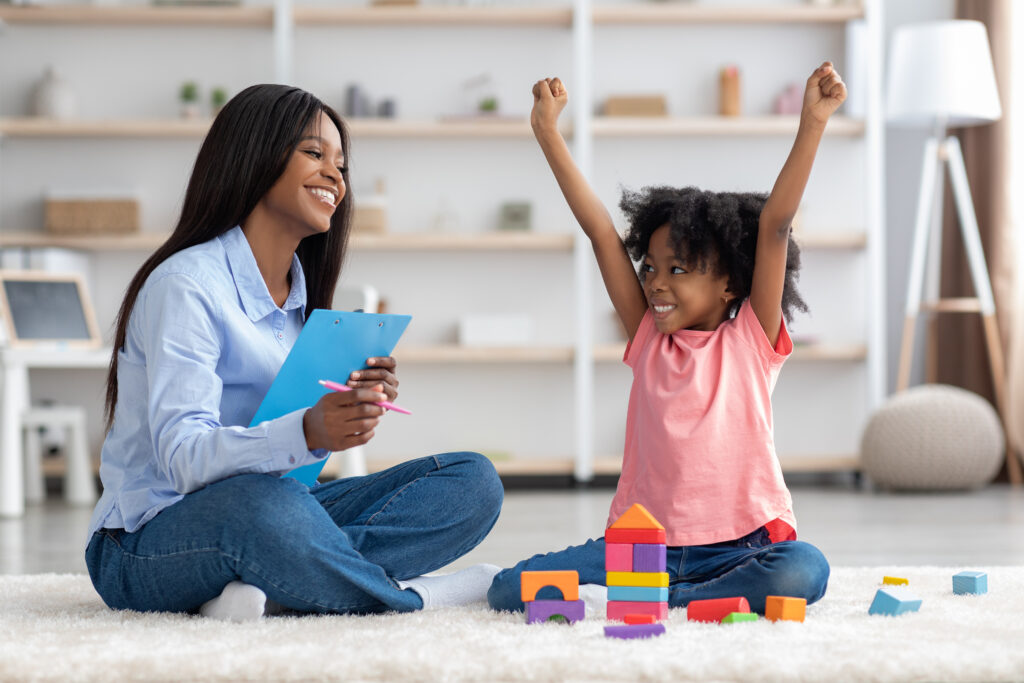Acadomia USA News, Learn a Language, Tutoring
How to Raise a Bilingual Child
Bilingualism opens up a wide variety of opportunities for your child. But if you aren’t already bilingual yourself, raising a bilingual child can be difficult. It’s not easy trying to figure out what works and what doesn’t. In this article, we’ll use research and data to highlight the best ways to raise a bilingual child. Along the way, we’ll also explore some common myths and misconceptions about bilingual children. Keep reading to learn how to best support your child in all of their language journeys.

Bilingual Children
For years, researchers incorrectly believed that bilingual children have a harder time than their monolingual peers. Supposedly, children raised in bilingual homes would have delays in their language development. Even today, many people believe this and will advocate for children in bilingual homes to only learn one language. This flawed reasoning has been used to justify many parents only speaking English around their children. In some cases, it was even believed bilingualism would worsen a child’s speech disorder, like stuttering.
Because of these unfortunate misconceptions, there was a period of time when many people were advocating against raising bilingual children. Today, this might sound crazy, but it’s true. Far too often, bilingual parents were told to ignore one language in favor of another. They were encouraged to only speak one language at home in order to avoid confusing their child.
Luckily, we now know better. Not only are these misconceptions false, but there are many benefits to raising a bilingual child. Bilingual children have very large vocabularies that reach across languages. Research shows that bilingual children have very high reading levels, creativity, and problem-solving skills. Learning two languages from an early age allows them to think creatively and solve problems as they learn the rules of two different languages. While it was once believed that this would hinder children’s development, we now know that it does the opposite.
Being bilingual has immense benefits beyond childhood skills. Being bilingual opens your child up to a world of possibilities. Not only does being bilingual look great on a resume, but it’s a very practical life skill to have. They have more freedom for traveling, working, and even making friends because of their language skills. Some researchers have even found that being bilingual helps prevent diseases like Alzheimer’s. Raising a bilingual child has huge benefits on their opportunities as well as their overall brain development.

Raising Children
The easiest way to raise a bilingual child would be to raise them in a bilingual home. Unfortunately for many people, this isn’t possible. Not everyone has the opportunity to speak a second language fluently at home. Some people believe that raising a bilingual child as a monolingual parent is difficult or impossible. In reality, any child can learn to be bilingual if given the right resources.
To ensure your child has the best shot at becoming bilingual, start as soon as possible. From infancy, children listen to the language around them. Even before they can understand it, they hear and absorb language. Developmentally, it’s best to try introducing both languages to the child as soon as possible.
When children are young, they act almost like sponges, absorbing knowledge as they grow. As they get older, these learning abilities start to fade. Sometimes it’s difficult to learn a new language once you’ve already learned all the grammar rules of another. Most research shows that learning a language after the age of 18 is incredibly difficult. Introducing both languages to a child when they’re young gives them the best chance at being bilingual into adulthood.
Books are some of the best resources when it comes to raising a bilingual child. In general, reading is very formative for a child’s development. If you want to raise a bilingual child, try reading to your child from books in different languages. As a parent, this will also give you the chance to practice pronunciation while your child practices reading along.
Songs can be another great way to teach your child a second language. There are many educational songs out there that can help children remember letters and grammar rules. We use songs to teach children English letters all the time, so it’s definitely worth exploring. In addition to educational songs, expose your child to all kinds of media in another language. Music and television can teach your child words and grammar rules that they might not learn otherwise. Children learn language by hearing it spoken around them, so it’s important to give them a lot of opportunities to listen to native speakers.
Additionally, there are many games, puzzles, and toys that are designed to encourage language development in children. Use these as fun ways to practice the language at home. There are many resources online, depending on the needs of your child. If possible, try to arrange for your child to speak to native speakers directly. In some cases, this may involve family members, friends, or even strangers. Regardless of who it is, children need to practice actually speaking a language in the real world. It’s not enough for them to just hear it at home. This way, they can encounter new words and phrases they might not otherwise hear.
And of course many school districts offer bilingual education right in elementary school. As young as 1st grade your child can learn in 2 languages. Those International Studies programs offer Spanish, French, German, Italian, Portuguese or Chinese bilingual studies. Daily the children have 3.5 hours of English and 2.5 hours of the foreign language. In the second language they learn to speak and write but also learn the culture via social studies topics. This is the best way to ensure your child is bilingual by the age of 10.

Language Tutor
While all of the aforementioned tips are great for raising a bilingual child, nothing will replace a language tutor. Language tutors give your child the best chance at learning and retaining a second language and can be invaluable for homework help in a bilingual school. Tutoring programs like the ones at Acadomia can give your child the knowledge of a native speaker, brought directly to them. Language programs are designed with education in mind, making them an irreplaceable resource.
If you want to raise a bilingual child, it’s important to constantly expose them to language. If you aren’t bilingual yourself, try showing them media in your new language. Books, songs, and television shows can all enhance your child’s understanding. Take advantage of resources designed for language learning. Encourage your child’s development with toys designed to practice important skills. Lastly, find the Acadomia tutoring program right for you. Tutors are the only way to ensure a skilled speaker can teach your child directly.
